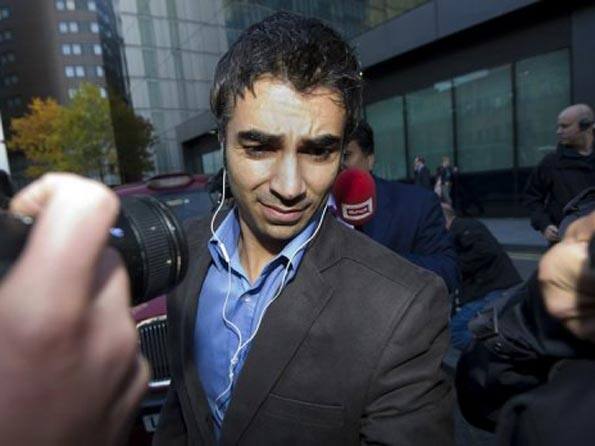
Cricket Country Staff
Editorial team of CricketCountry.
Pakistan cricket authorities have approved the setting-up of a "vigilance and security division" to fight corruption in the game, a month after three top players were convicted of spot-fixing.
Written by Cricket Country Staff
Published: Dec 02, 2011, 11:41 AM (IST)
Edited: Dec 02, 2011, 11:41 AM (IST)


The move comes in the aftermath of the spot fixing scandal that rocked the cricket world last year © AFP
Karachi: Dec 2, 2011
Pakistan cricket authorities have approved the setting-up of a “vigilance and security division” to fight corruption in the game, a month after three top players were convicted of spot-fixing.
Pakistan Cricket Board (PCB) has been criticised for failing to combat graft, highlighted by the sentencing of former Test captain Salman Butt and pacemen Mohammad Asif and Mohammad Aamer over their roles in fixing parts of a Lord’s Test against England last year.
The PCB’s governing board met in Lahore on Tuesday and approved the new branch, which it said would be headed by a senior retired police or army official.
“The division will be responsible for monitoring and managing issues related to corruption and security,” a PCB statement released on Thursday said.
New PCB chairman Zaka Ashraf said in the United Arab Emirates last month that strict measures would be brought into place “so that our players, wherever they are, don’t get in touch with people who try to drag them into such negative activity.”
Pakistan cricket has been blighted by allegations of match-fixing since 1995 when Australian trio Shane Warne, Tim May and Mark Waugh alleged then captain Salim Malik offered them bribes to under perform during a tour to Pakistan.
A judicial inquiry ended in life bans for Malik and paceman Ata-ur Rehman. It also fined Wasim Akram, Waqar Younis, Saeed Anwar, Inzamam-ul Haq, Mushtaq Ahmed and Akram Raza.
After the spot-fixing scandal last year, the International Cricket Council came down hard on Pakistan, forcing them to form an integrity committee to look into players’ assets and behaviour. (AFP)
This website uses cookies so that we can provide you with the best user experience possible. Cookie information is stored in your browser and performs functions such as recognising you when you return to our website and helping our team to understand which sections of the website you find most interesting and useful.
Strictly Necessary Cookie should be enabled at all times so that we can save your preferences for cookie settings.
If you disable this cookie, we will not be able to save your preferences. This means that every time you visit this website you will need to enable or disable cookies again.
